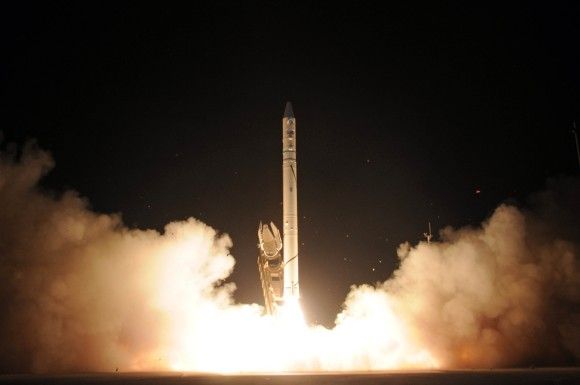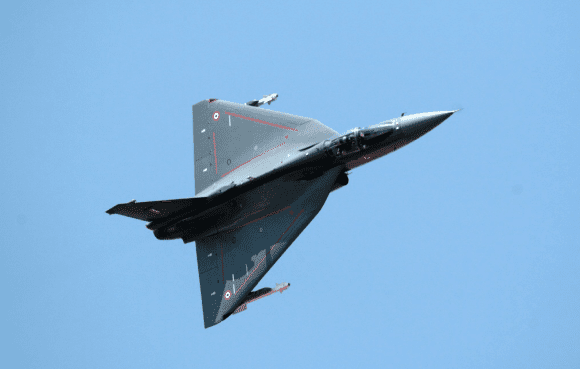Geopolitics
Poland Will Become The NATO “Spearhead” Leading Nation In 2020. V4 Battle Group Ready To Operate
Tomasz Szatkowski, MoD’s Secretary of State, announced that Poland is going to become the leading nation for the Land Forces of the NATO “Spearhead” element of the quick reaction forces in 2020. A meeting of the Visegrad Group Defence Ministers took place in Prague. The talks covered the issues of the EU Battle Group, preparation of the NATO Summit in Warsaw, and the migrant crisis in Europe.
During the V4 Group Defence Ministers meeting, which took place on 17th December 2015, Poland was being represented by the Undersecretary of State at the Polish Ministry of Defence, Tomasz Szatkowski. Czech Republic was represented by Martin Stropnicky, the Czech Defence Minister. Istvan Simicskio, Hungarian Minister of Defence, represented the Budapest government, while Slovakia was represented by the Deputy Minister of Defence, Milosz Koterec.
The main areas of the talks for the V4 group representatives included the EU Battle Group, preparations to the NATO summit in Warsaw and the European migrant crisis. During the meeting with the press, Tomasz Szatkowski said that the V4 Battle Group constitutes a confirmation of interest expressed by the states of the region, within the scope of organization of and involvement in the process of joint military units. This – at the same time – may be interpreted as evidence, proving that the Visegrad Group is capable of creating joint military units. Szatkowski also announced that during the year 2020 Poland is going to become a framework nation for the land forces component of the so called NATO “Spearhead” (VJTF) unit. Moreover, initial consent has been granted by the V4 group, to introduce a Visegrad component into the aforementioned unit.
In practical terms, the above means that a brigade-sized land forces unit is going to be commanded by Poland. The said element is going to involve 5-7 thousand troops, and it should be capable of reaching deployment readiness within 5 to 7 days. Its core is going to be formed by up to 5 battalion combat groups, along with the relevant support units.
The decision to create the “Spearhead” has been made during the NATO Summit in Wales. It is an element of a wider reform of the NATO Quick Reaction Forces, increasing the quantitative dimension of that element which now involves ca. 40,000 troops. VJTF land component will be supported by the air force, navy and by the special forces. The brigade is going to – most probably – stay on alert for three years. During the second year it is going to show the highest degree of readiness.
During the meeting, most of the attention was given to the V4 Battle Group which has passed a certification, confirming proper level of preparation of the soldiers for the newly defined tasks in November 2015. After the certification was issued, the group has achieved full readiness to operate. According to the unanimous opinion of the Ministers of the V4 group member states, the process of creating the Group, and its operation, are going to constitute an opportunity to gather relevant experiences that may be used during the upcoming years.
We have opened a new chapter of effective cooperation. We are showing, to all of the countries, that we are capable of joining our efforts in the processes of protecting of our beliefs and understanding our problems. We are much stronger, than if we were acting alone. Today, in the 21st Century, it is required for the people in our region to cooperate. Together, we are stronger, and together, we create solutions.
V4 Battle Group has been created on the basis of the elements coming from the Polish “Szczecinska” 12th Mechanized Division, supported by the forces coming from the Czech, Slovak and Hungarian armies. The group consists of 3900 troops, half of whom are Polish. 800 soldiers come from the Czech Republic, 600 come from Hungary. Slovakia contributes ca. 450 troops. The core of the Group’s command is formed by the Polish staff. The command has been created around the Cracow Land Operations Centre of the Land Forces Command.
READ MORE: V4 Battle Group Command In Cracow
Deputy Minister Szatkowski also told the media that, during the discussion about the next year’s NATO summit in Warsaw, Polish stance has been expressed - “We are interested in reinforcing the defensive capabilities of all the NATO member states through the summit, also those of the Eastern flank. A Discussion is being held at NATO now, covering the issues of reinforcing the defensive capabilities and deterrence. In the eyes of Poland, not only should that be based on the idea of reinforcement, but also on idea of actual presence of the NATO units, also at the Eastern flank. We expect that the NATO summit in Warsaw is going to provide us with a resolution within that scope”.
During the further part of the press meeting, Martin Stropnicky, the Czech Minister of Defence, stated that V4 Group member states unanimously agree, that within the scope of the immigration crisis, defending the external borders of the Schengen Area, so that one of the most important advantages of the European Union - free movement of persons between the member states - is still valid.
Throughout the negotiations, the Ministers emphasized that there is a great need to cooperate and jointly implement initiatives that have a relevant meaning for increasing the level of security of the individual states, and increasing the level of security in Europe.


